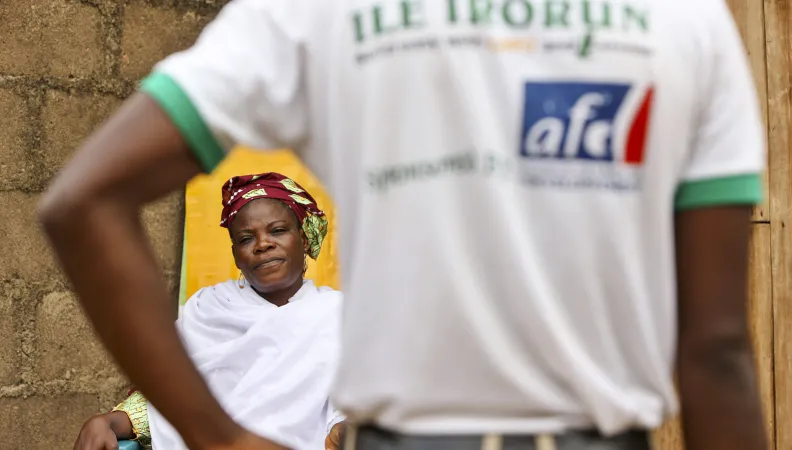Share the page
Provide access to microcredit to fight unsanitary Housing
Project


-
Project start date
-
Status
Completed
-
Project end date
-
-
Project duration
-
3 ans
-
AFD financing amount
-
€ 5000000
-
Country and region
-
Location
-
Nigeria
-
Type of financing
-
Beneficiaries
-
LAPO Microfinance Bank Ltd
Unsanitary housing is all over Nigeria. For low-income households to live in more decent conditions, AFD contributes to broadening their access to microloans.
Context
Nigeria is Africa’s most populated country. More than half of its population lives in urban areas and the annual growth of the urban population is at 3.8% per year, one of the highest in the world.
This growth occurs in a context of extreme poverty: about two-thirds of the Nigerian population live with less than USD 1.25 per day. As a result, unsanitary tenements multiply: some areas are deprived of basic infrastructures (water, electricity, roads) and decent accommodation.
The housing deficit in Nigeria is estimated at 16 million units. Demand for affordable housing is high but supply is low, inadequate, and mainly in favour of the upper class. Very few new developments are affordable enough for low and middle-income households.
Besides, these households have no access to credit. Only 2% of the adult population does. Two-thirds of the Nigerian population are excluded from the formal banking sector.
Description
The microfinance housing project intends to improving the housing conditions of low-income households and reducing unsanitary accommodation in Nigeria.
It has a double objective:
- to improve access to credit for low-income households, so that they can build or renovate their homes: to do so, the project supports the country’s biggest microfinance bank, the Lift Above Poverty Organization Microfinance Bank, in developing and marketing an affordable financial product;
- to provide technical assistance to borrowers who want to build their own house, to guarantee the quality of all constructions.
Impacts
- Granting of 3,450 housing microloans.
- Access to improved housing for 10,000 people.
- Broadening of financial inclusion in the country.


